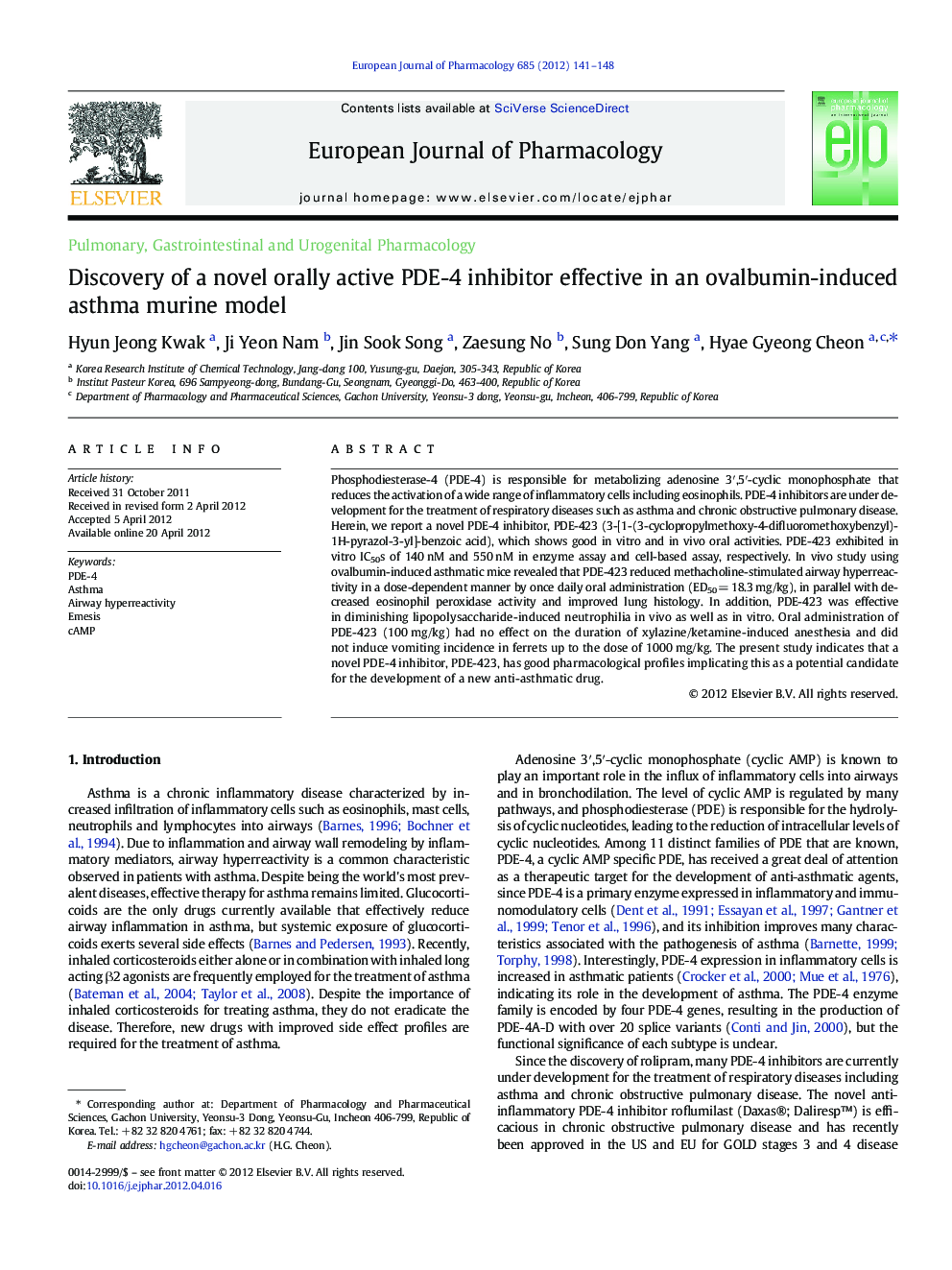| Article ID | Journal | Published Year | Pages | File Type |
|---|---|---|---|---|
| 5829501 | European Journal of Pharmacology | 2012 | 8 Pages |
Phosphodiesterase-4 (PDE-4) is responsible for metabolizing adenosine 3â²,5â²-cyclic monophosphate that reduces the activation of a wide range of inflammatory cells including eosinophils. PDE-4 inhibitors are under development for the treatment of respiratory diseases such as asthma and chronic obstructive pulmonary disease. Herein, we report a novel PDE-4 inhibitor, PDE-423 (3-[1-(3-cyclopropylmethoxy-4-difluoromethoxybenzyl)-1H-pyrazol-3-yl]-benzoic acid), which shows good in vitro and in vivo oral activities. PDE-423 exhibited in vitro IC50s of 140Â nM and 550Â nM in enzyme assay and cell-based assay, respectively. In vivo study using ovalbumin-induced asthmatic mice revealed that PDE-423 reduced methacholine-stimulated airway hyperreactivity in a dose-dependent manner by once daily oral administration (ED50Â =Â 18.3Â mg/kg), in parallel with decreased eosinophil peroxidase activity and improved lung histology. In addition, PDE-423 was effective in diminishing lipopolysaccharide-induced neutrophilia in vivo as well as in vitro. Oral administration of PDE-423 (100Â mg/kg) had no effect on the duration of xylazine/ketamine-induced anesthesia and did not induce vomiting incidence in ferrets up to the dose of 1000Â mg/kg. The present study indicates that a novel PDE-4 inhibitor, PDE-423, has good pharmacological profiles implicating this as a potential candidate for the development of a new anti-asthmatic drug.
